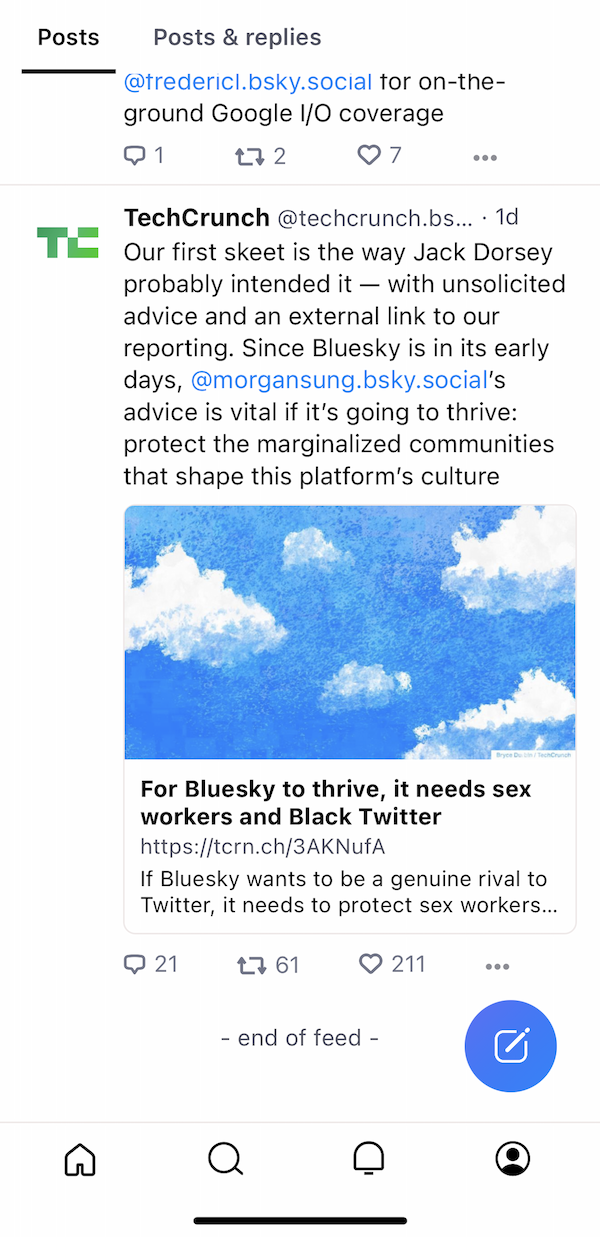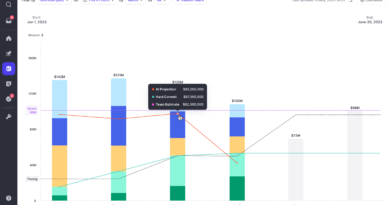Standard protocol: In a post-Twitter world, Mastodon and Bluesky need to get on the same page
In a week that has seen Twitter’s continued decimation with read-limits and TweetDeck trundling behind the Great Blue Paywall™, there has been renewed interest in alternatives, as those still clinging to the sinking social network seek salvation in something a little more seaworthy.
It’s also why Meta’s new Threads app seems all the more timely, formally launching just yesterday amid all the Twitter hullaballoo.
For the most part, there is nothing new here. It has been clear since last October that Elon Musk has been hellbent on moulding Twitter into whatever ill-conceived vision he has for the platform, aided of late by new CEO Linda Yaccarino. As such, alternatives like Mastodon have been thrust into the limelight with record downloads, while more recently Jack Dorsey-backed Bluesky has been vying for our affection too.
There have been others of course, such as Post and Spill, but Mastodon and Bluesky have emerged as the go-to favorites for many, due in large part to their promise of decentralization and interoperability — that is, their inherent abilities to allow users to converse with users on other social networks.
There is a significant caveat here though. Bluesky is built on the fledgling AT Protocol, while Mastodon leans on ActivityPub. What this means is that people are currently in a mild panic about whether they should jump head-first into Bluesky or Mastodon, often electing to hedge their bets and join both — meaning they don’t really give their full attention to either platform.
So in effect, one of main issues these platforms claim to solve — interoperability and the ability to ‘lift and shift’ your data elsewhere — aren’t really being solved.

Bluesky app Image Credits: Natalie Christman
Momentum
It’s clear that of the two protocols, ActivityPub has by far the most momentum, by virtue of the fact that it has had five years to gain steam.
While Meta’s Threads won’t be to everyone’s taste for a swathe of reasons, it has committed to implementing the ActivityPub protocol, though it’s not supported at launch. WordPress.com owner Automattic is also putting its weight behind ActivityPub, as is Flipboard.
At Protocol, meanwhile, counts Twitter spinout Bluesky as its only known flag-waver, with its original plans to have Twitter as the main flagship app shelved in the wake of Musk’s arrival at Twitter.
However, Bluesky has just launched its first premium (i.e. paid for) feature and raised $8 million in seed funding, which includes ActivityPub supporter Automattic as an investor. And Bluesky recently had to halt signups due to a surge in demand stemming from changes being made at Twitter.
So, it feels like there is a little momentum behind Bluesky too.
But it’s becoming clearer than ever that there needs to be at least a little synergy between Bluesky and Mastodon if we’re going to have a smoother path forward in a post-Twitter world.

Mastodon Android app Image Credits: Mastodon
‘Be a better Twitter’
It’s true that we’ve seen many social networks thrive over the past decade, often concurrently, with Facebook and Twitter leading the charge. Others to succeed include Snapchat, Instagram (albeit owned by Facebook), and Reddit. And if we want to widen the definition of what a social network actually is, we can even include the likes of WhatsApp and YouTube in this discussion.
This shows that it is possible for multiple social networks to flourish in tandem. But the difference with these behemoths is that they arrived on the scene at different times and with different features and use-cases in mind. They weren’t all trying to be the same thing to everyone, even if some of their features and functionality ended up being somewhat similar.
With Mastodon and Bluesky, however, despite their different journeys to where they are today, they are effectively trying to do the same thing — “be a better Twitter” — with the same underlying promise of freedom and interoperability.
The most obvious solution would have been for Bluesky to simply have adopted ActivityPub from the get-go, but for various reasons — chief among them being the ability to port accounts securely, according to AT Protocol’s FAQ page — Bluesky has chosen to forge its own path.
That Bluesky and Mastodon are using different protocols doesn’t necessarily mean that all is lost though. With their open source foundations, it’s technically possible to build some sort of bridge between the two protocols, with efforts currently underway from the software development community to do just that.
But whatever solution users come up with, it probably won’t be perfect and it feels like a more native compatibility between the two services is inevitable at some point. And as support for ActivityPub grows, Bluesky might have to address this.
Indeed, Threads’ impending support for ActivityPub helps to highlight the power of decentralized social networks built on a common foundation. There can be a multitude of different clients with different selling points and monetization models. So even if you’re balking at the idea of giving over all your data to Facebook’s new sibling, it won’t matter as much because as you can still chat with your friends safely from Mastodon.
That all said, the whole “Bluesky or Mastodon” discussion should be moot already, given the shared mission and goals of both services. Instead, we’re seeing splinter factions emerge from the Twitter rubble with no sense of unity.
This is what happens when there is little clear differentiation between competing services, causing potential users to flounder half-heartedly between different social networks, unable to decide which one they should use (we’ve all heard of the choice paradox). It’s a problem that could substantively be solved — in this instance, at least — if Bluesky and Mastodon could just get themselves on the same page.




